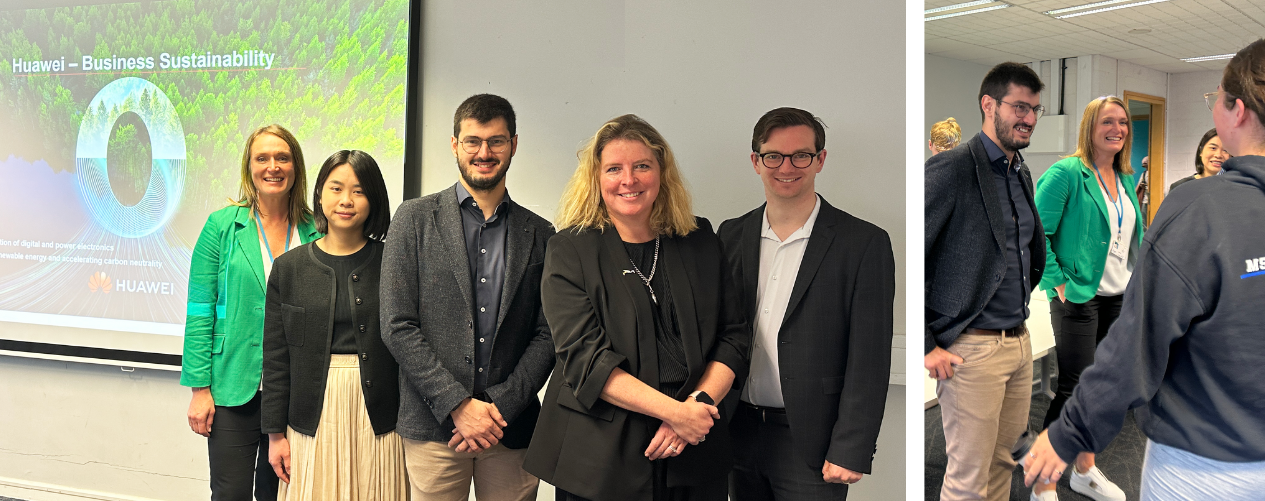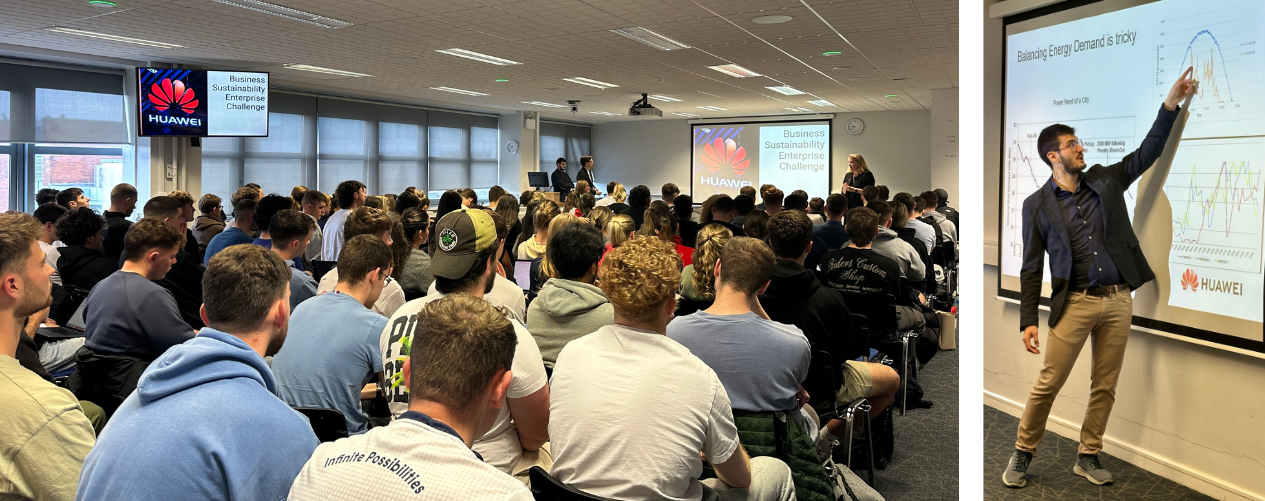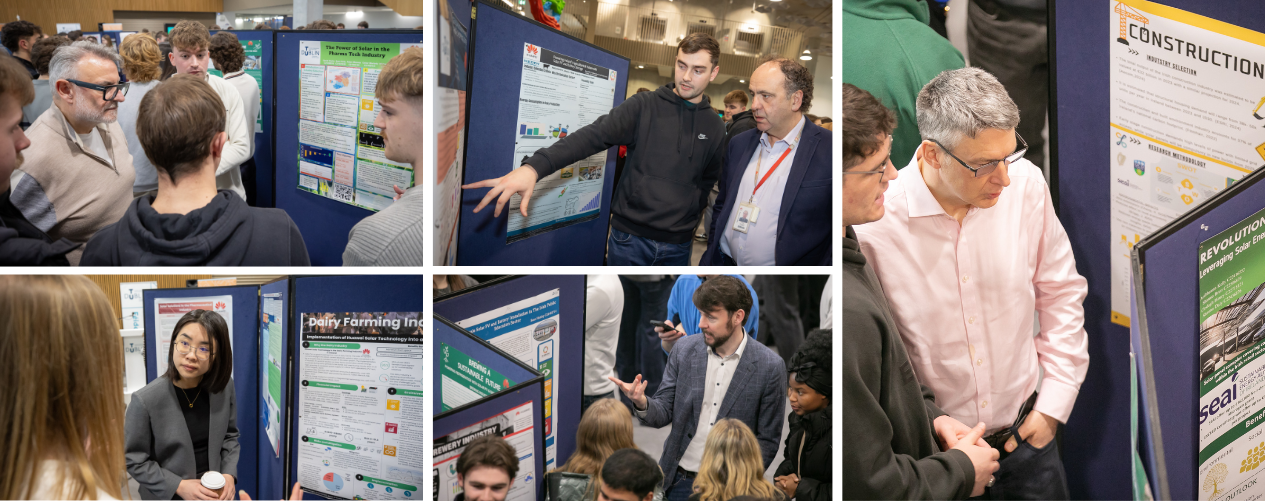Huawei Business Sustainability Enterprise Challenge

ABOUT THE COLLABORATOR
Founded in 1987, Huawei is a leading global provider of information and communications technology (ICT) infrastructure and smart devices. With 207,000 employees and in over 170 countries and regions, they serve more than three billion people around the world. Huawei may be best known for its innovative telecommunications products and services, but it is also a key player in the renewable energy space. In particular, the company’s highly advanced solar photovoltaic (PV) and battery energy storage products are in wide use by organisations in every sector across the globe.
Since its arrival in 2004, Huawei’s activities in Ireland have developed from supplying mobile phones, to being at the forefront of the current 5G digital transformation and Ireland’s green transition. Huawei’s activities globally, and in Ireland, are underpinned by a core focus on R&D. Annually Huawei spends 10%-15% of its global sales revenue on R&D, in 2023 its total R&D spending reached €21.2 billion. In Ireland, Huawei has invested over €250 million in its Irish R&D efforts between 2019-2023. Along with the positive impact of Huawei’s R&D activities, Ireland’s economy derives significant economic benefits from Huawei with a total annualised economic contribution of over €800 million and this figure will reach €4.5 billion between now and 2030 according to a recent Amárach report. Huawei’s Irish operations employ 543 individuals and support the employment of a further 6,100 individuals through indirect and induced effects from its activities.
Huawei is continually seeking new applications and use cases for this technology and, in April 2024, discussed with the TU Dublin Enterprise Academy on partnership with the University and assist in exploring new innovative uses for their technologies.

THE COLLABORATION
The Huawei Business Sustainability Enterprise Challenge, engaged 175 students across the School of Marketing and Entrepreneurship, the School of Management, People and Operations and EM Normandie exchange students through the Business Sustainability module led by Dr. Lesley Murphy and Dr. Ciarán O'Carroll. The challenge tasked students with developing business cases for implementing large-scale solar PV and battery installations in various Irish industries. Working in groups, students conducted research projects and developed solutions that aligned with the UN Sustainable Development Goals (SDGs).
Baolin Liang and Cagatay Altintas from Huawei kicked off the challenge with students, with Cagatay, Senior Solution Manager – Digital Power at Huawei, introducing the topic to the group. He presented the role of solar and battery storage in high-energy industries, provided an overview of the solar sector, introduced battery and storage technologies, along with their market applications, and showcased best practices across Europe.
The collaboration culminated in the Huawei Business Sustainability Enterprise Challenge exhibition and awards ceremony at TU Dublin, where students showcased their innovative business cases focused on Solar/VP solutions. TU Dublin was delighted to welcome Huawei representatives to evaluate final projects and award prizes to the top teams.

IMPACT AND BENEFITS
For Learners
The partnership with Huawei has provided learners with invaluable benefits, from gaining a better understanding of energy evolution and transformation to enhancing their CVs, to receiving mentorship and insights from industry experts. Those involved in the Business Sustainability Enterprise Challenge benefited from researching and designing solutions based on a real industry challenge with a global industry. They will be more prepared to bring those skills forward into their future careers and help Ireland meet its carbon reduction targets.

For Huawei
Luke McDonnell, Head of PR at Huawei Ireland described the collaboration between Huawei and the TU Dublin team emphasised the importance of industry-academic collaboration in initiatives like the TU Dublin Sustainability Challenge, highlighting how working together to solve real-world problems can lead to significant achievements. He noted that such partnerships showcase the role of digital technologies in helping Ireland meet its 2030 carbon reduction targets. Huawei was proud to partner with TU Dublin on the challenge, and solutions presented by the students impressed him, with some demonstrating real commercial viability.
COLLABORATE WITH ENTERPRISE FACULTY
